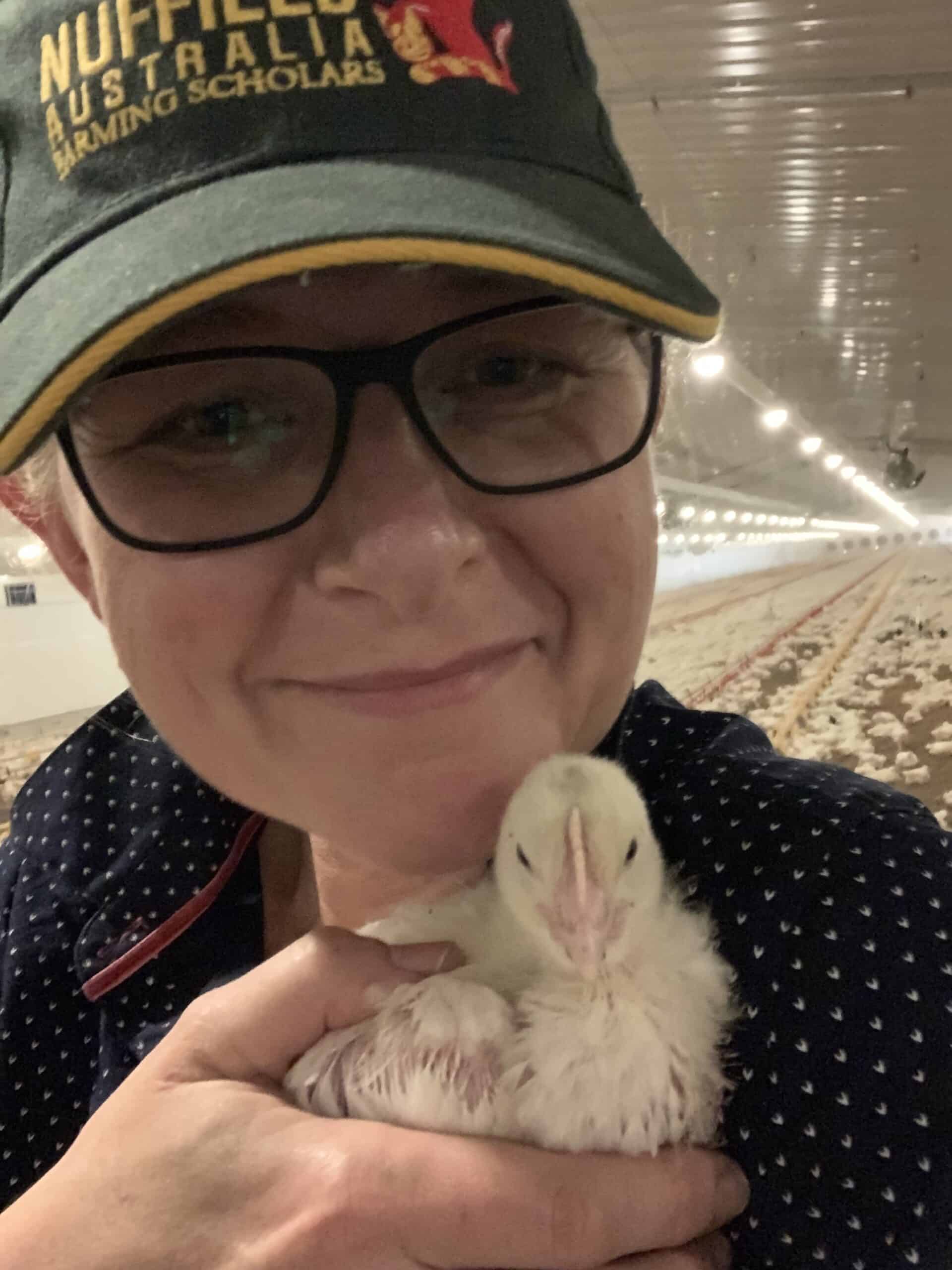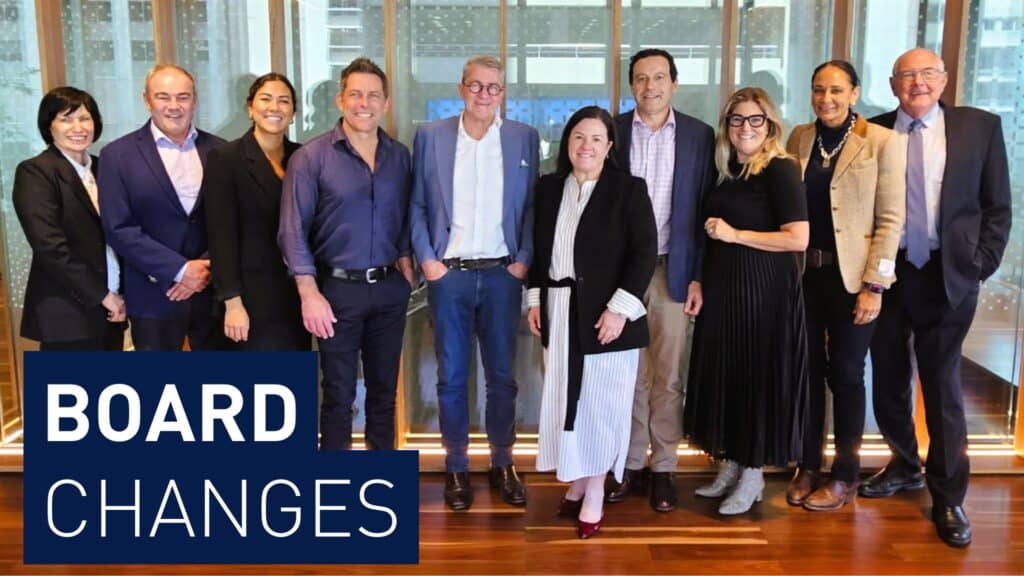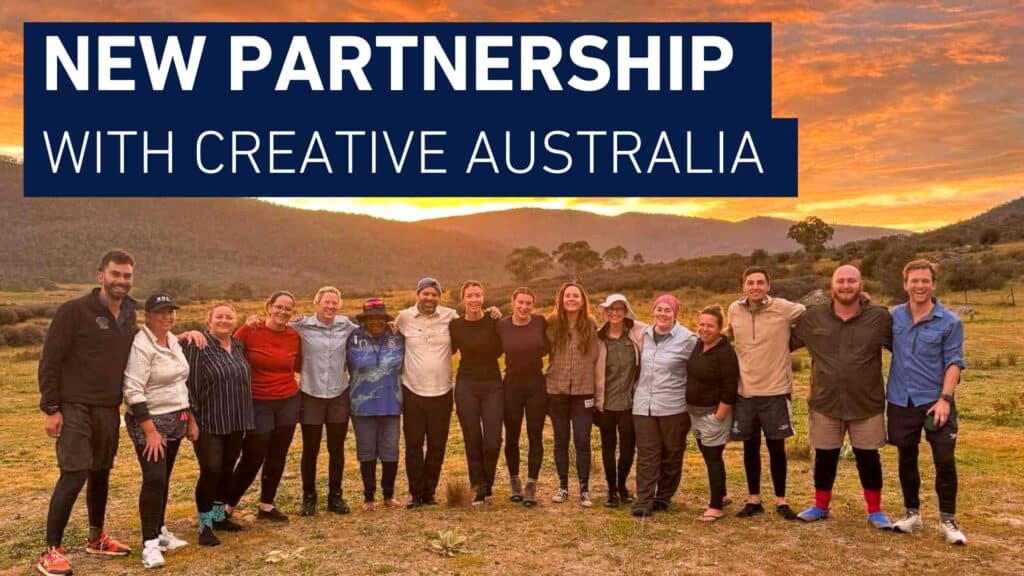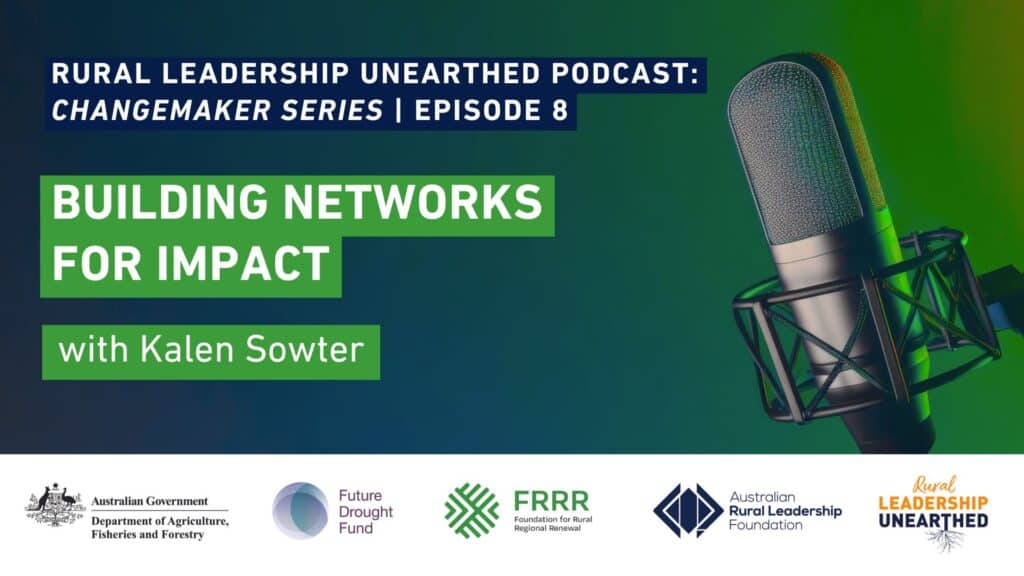Author: Gabrielle Hall
A passionate animal welfare advocate, Kelly McTavish delved into a transformative experience with the Australian Rural Leadership Foundation’s (ARLF) mentoring program, finding unexpected connections and guidance.
Learn how Kelly’s dedication to enhancing chicken welfare and her insights into industry earned her the moniker “Chicken Woman”. Read her story of resilience, continuous improvement, and her ambition to pay forward the mentorship she received.
Kelly McTavish was given the nickname, ‘Chicken Woman’, by some university mates many years ago, and frankly, she could not love it more.
The name perfectly reflects her passion for the chicken industry.
It is an industry that has given her opportunity, vast experiences, and led her to gain a prestigious Nuffield Scholarship.
Such is her passion, Kelly has undertaken multiple poultry animal welfare auditor trainings across the world.
The experiences helped expand her networks, but a few of those people really made a lasting impression and prompted Kelly to strive to further improve herself.
“These people stood out to me as skilled, successful leaders of their industries,” she said.
“What I noticed was that these people all had a common thread – they had been through a mentoring pathway and all had a connection to the Australian Rural Leadership Foundation.”
Delving in further, Kelly came across the Drought Resilience Leaders Mentoring Program and applied to become a mentee.
She completed a six-month program, and has now almost finished a follow-up 12-month menteeship with the National Mentoring Program. The benefits have been far-reaching.
Kelly says the ARLF provided a network like she had never experienced before. She felt she connected and bonded solidly, and it provided a safe space to gain knowledge and guidance.
In her current menteeship, Kelly was partnered with mentor, cattle industry stalwart and farmer Tess Herbert, who was named alongside husband Andrew as 2023 Australian Farmer of the Year.
It was a little daunting initially for Kelly to be bestowed Tess as her mentor. However, they connected on many levels to easily form a trusted, long-lasting relationship.
“If you’re passionate about agriculture and looking for some guidance, being partnered with the Farmer of the Year does not get much better,” Kelly said.
“It was a little intimidating initially – Tess has a wealth of knowledge, experience and accolades under her belt – but you can learn so much from someone like that so you just have to trust and believe in the process.
“I experienced a lot of personal connection during the program, which was something I hadn’t really considered. It’s been a blessing, the personal connections are what I cherish most.”
Being part of the mentoring programs is also helping Kelly on her path to continuously improving the welfare of animals, especially in the chicken meat industry.
“Over time, I’ve come to realise that as much as we know, we can only physically look after so many chickens in our own care,” Kelly said.
“At university I studied animal production so I could have a direct effect on positive animal welfare, though I have come to realise the real value of knowledge and experience is to be able to share it with other people.
“If I can help people look after the animals, then I can have a greater impact on far more animals’ lives and their welfare.”
Opening our minds
Kelly encouraged others to apply to be part of the National Mentoring Program to expand their network, and open their minds.
“I’ve come to realise we all need mentors and I couldn’t recommend the ARLF and the Drought Resilience Leaders Mentoring Program highly enough to meet this need,” she said.
“It gives you tools and skills to expand your thinking.
“What really sat with me – and probably sat me back – was the need to reflect on some of my own thinking and see things from a different perspective, and open my mind to different thinking.
“It’s about questioning, staying curious, listening, learning and connecting to give back.”
Life BC (Before Chickens!)
Kelly grew up near Wamuran, Queensland, on a small acreage, always surrounded by animals.
She says the area, now encroached by urban sprawl, epitomises rural Australia’s resilience and adaptability to cope with changing landscapes and environment.
“Drought has an affect all communities, and growing up it had a profound impact on me, seeing animals and farmers doing it tough,” Kelly said.
Kelly has always loved animals, but attending a high school with a large agricultural program cemented her passion for all rural industry.
Ferraris of the chicken world drive Kelly’s passion
Kelly admits she “fell into” the chicken industry after university, but what surprised her was how quickly she fell in love with the chickens.
She is still in awe of these “amazing” animals, and has made it her life work to give them the best welfare and care so they can perform at their best.
“I work primarily with meat chickens and they’re like the Ferrari of the poultry world,” Kelly quips.
It is a phrase she heard many years ago and it resonated strongly with her, saying it comes down to chickens being one of the “most efficient feed converters we have”.
“You don’t put low grade fuel in a Ferrari, you don’t leave your Ferrari out exposed to the elements, you give it the best nutrition and you house it in the best environment possible so that it can hum,” Kelly said.
“If you don’t, then it will be more like a Corolla.”
With such passion and experience, Kelly has her sights now set on becoming a future mentor to others.
She firmly believes in the philosophy that ‘with every connection there is the opportunity for learning’ and says the ARLF has provided the pathway to continue to grow and perform at her best.
“I have been able to connect with an entire new network and it is so nurturing, positive and supportive,” Kelly said.
“I feel I connected with others in ways that I hadn’t imagined, and I cherish that.”
The National Mentoring Program is part of the Helping Regional Communities Prepare for Drought Initiative delivered in partnership with the Foundation for Rural & Regional Renewal under the Australian Government’s Future Drought Fund.





